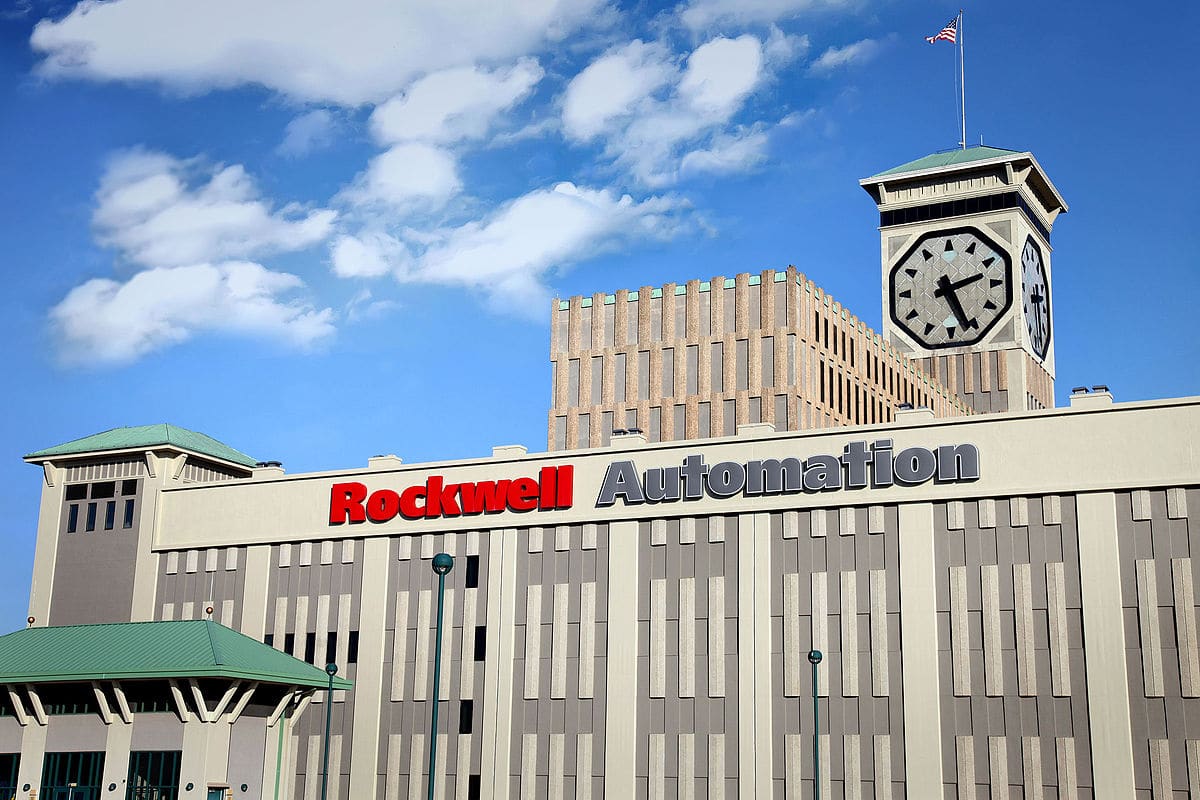Il Consiglio di Amministrazione di Rockwell Automation ha respinto all’unanimità la clamorosa proposta di acquisizione formulata lo scorso 16 novembre da Emerson. La motivazione espressa è semplice: l’operazione “non è nell’interesse di Rockwell Automation e dei suoi azionisti”.
La proposta di Emerson, spiegano da Milwaukee, “sottovaluta Rockwell Automation e le sue prospettive di crescita e creazione di valore, presenta notevoli rischi a lungo termine per gli azionisti di Rockwell Automation e creerebbe un’azienda che non è ben posizionata per competere con successo in un mercato in continua evoluzione”.
Blake D. Moret, presidente e amministratore delegato di Rockwell, ha spiegato che l’azienda proseguirà sulla strada intrapresa, nella convinzione che in tal modo saprà offrire agli azionisti un “valore superiore alla proposta di Emerson, considerate soprattutto la posizione indebolita e le sinergie negative che deriverebbero dalla combinazione delle due organizzazioni”.
Moret ha poi aggiunto: “Più grande non significa sempre meglio quando si tratta di stimolare la crescita e la creazione di valore. Se Emerson può vedere questa acquisizione come necessaria per migliorare il suo potenziale di crescita e di guadagno ed espandere le sue possibilità nel mercato dell’ automazione industriale e dell’IT, per Rockwell non è così. Abbiamo il talento, la tecnologia, la cultura e le risorse necessarie per continuare ad alzare il livello, superando le aspettative dei nostri clienti e creando un valore superiore per gli azionisti di Rockwell Automation”.
La lettera
Ecco il testo integrale della lettera inviata il 22 novembre 2017 a David N. Farr, Presidente e Amministratore Delegato di Emerson:
Dear Mr. Farr:
I am writing to you on behalf of the Board of Directors of Rockwell Automation in response to Emerson’s revised unsolicited proposal set forth in your public letter and presentation dated November 16, 2017. The value of your proposal is $218.481 per Rockwell Automation share based on Emerson’s closing share price on November 17, 2017. This represents only a 16.8% premium to the undisturbed Rockwell Automation stock price on October 30, 2017, the last trading day before the public disclosure of your prior proposals. The value of your current offer represents an increase of 1.6% over the headline value of your previous proposal dated October 10, 2017.
Our Board of Directors, in consultation with its financial and legal advisors, has thoroughly considered your November 16, 2017 proposal and has unanimously determined that it is not in the best interests ofRockwell Automation and its shareowners. Emerson’s proposal undervalues Rockwell Automation and its prospects for continued growth and value creation, presents significant long-term risk for Rockwell Automation’s shareowners, and would create a company that is not well-positioned to compete successfully in the evolving market.
We believe that continuing to execute Rockwell Automation’s successful strategy, which is generating extraordinary returns for the Company’s shareowners, will create greater long-term value than pursuing your proposal.
Rockwell Automation’s Connected Enterprise strategy is working.
Rockwell Automation is experiencing great success as the world’s largest company dedicated to industrial automation and information. By bringing The Connected Enterprise to life, we are helping industrial companies and their people be more productive, harnessing the Industrial Internet of Things. Rockwell Automation is a pure play, integrated business, which provides substantial efficiencies for our Company and our customers as compared to a diversified manufacturer of commercial, residential, and industrial products. The Rockwell Automation Board and management team are very confident in Rockwell Automation’s prospects and believe that Rockwell Automation is uniquely positioned to create additional value for Rockwell Automation’s shareowners. While Emerson may see this proposed acquisition as necessary to enhance its growth and earnings potential and expand its capabilities in the industrial automation and information market, Rockwell Automation does not. When we talked in June, 2017 it was apparent that our companies were on very different paths.
Rockwell Automation’s focused strategy has generated strong financial returns, including over 6% organic sales growth and 14% Adjusted Earnings Per Share growth in fiscal year 2017. Over the last ten years, return on invested capital averaged almost 30%.
Emerson’s proposed combination would destroy shareowner value and result in a less-competitive combined organization.
Your proposed combination would dampen, not enhance, the ability to grow in the evolving industrial automation and information market. Unlike Emerson, Rockwell Automation is singularly focused on making investments in one platform to deliver value to customers. Rockwell Automation provides solutions across all industries, including process, hybrid, and discrete applications, on a single platform and in one software environment. This approach enables the simplification our customers tell us they need. The proposed company would also have fundamental channel and partner conflicts, resulting in damage to Rockwell Automation’s unique limited distribution model. In short, given different technology platforms and market access models, a combination would destroy value for shareowners and customers rather than create it.
The company resulting from your proposed combination would also be highly leveraged. Moody’s Investors Service recently released its analysis of the proposed transaction, indicating that it would initially result in a combined company with close to $25 billion in debt and a pro forma ratio of debt to EBITDA approaching five times. This weakened financial position would impair the proposed company’s ability to make critical investments needed to support competitive differentiation and drive global growth. We believe that investments in information solutions and connected services, analytics, and geographic expansion are critical to long-term growth and value creation. Your proposed combined entity would have limited ability to make such investments without compromising a policy of substantial return of capital to shareowners through dividends and share repurchases, which Rockwell Automation shareowners have benefitted from for years and have said are important to them.
The mere fact that the combined entity would be larger does not mitigate these risks. Bigger is not always better for driving growth and value creation. Although your proposal appears to be based on a contrary view, Emerson’s decision to divest its drives and motors business, capabilities critical to process applications, demonstrates this awareness. While the proposed combined company would have a broader range of products and services, we believe it would be unable to match Rockwell Automation’s track record of delivering value to customers and shareowners.
Emerson’s stated synergy values are unrealistic and the proposed combination would face dis-synergies.
In attempting to justify your proposal, you have assumed there would be $400 million of run-rate synergies. A full one-third of these synergies are assumed to be revenue synergies, which are notoriously difficult to achieve. Moreover, the cost and revenue synergies are uncertain at best.
To achieve your synergy target, the proposed combined company would need to choose cost cuts instead of investments required to support, evolve, and integrate multiple control platforms. Even if Emerson were to choose to invest in maintaining multiple platforms, this decision would be significantly more expensive than Rockwell Automation’s strategy of continuing to add functionality to a single platform.
We believe the attempt to achieve the projected synergies would also result in a substantial loss of talent. Rockwell Automation’s success is largely attributable to our culture and the focus on attracting, developing, and retaining great employees and empowering them to do their best work. The cost synergies assumed in your proposal would result in significant job cuts and would undermine the ability to attract and motivate employees who can execute a long-term strategy that is designed to deliver results for customers and value for shareowners.
Even if the combined entity could achieve the cost synergies projected in your most recent letter, our analysis shows that the combination would be highly dilutive to the combined-entity’s GAAP earnings per share, which would reduce the value of your proposal to Rockwell Automation shareowners. Your statement in your November 16 presentation that the transaction would be “accretive to adjusted EPS . . . in year one” appears to have been based on a significant number of adjustments and assumptions, including giving effect to both cost and highly speculative revenue synergies, and excluding transaction-related amortization and fees, repatriation taxes, and costs to achieve synergies.
Emerson common stock is not an attractive acquisition currency and creates risk for our shareowners.
Your proposal contemplates that approximately 40% of the consideration to Rockwell Automationshareowners would be in the form of Emerson common stock. The performance of Emerson’s common stock, however, demonstrates that holding Emerson common stock would entail significant long-term risk for Rockwell Automation’s shareowners. Emerson substantially lags Rockwell Automation’s strong performance, and has consistently underperformed the S&P 500:
| Total Shareholder Return Through October 30, 20172 | |||||||||
| 1-Year | 3-Year | 5-Year | 10-Year | ||||||
| Rockwell Automation | 60.7% | 81.9% | 201.7% | 252.5% | |||||
| Emerson | 38.9% | 17.8% | 65.0% | 79.9% | |||||
| S&P 500 | 23.5% | 37.4% | 102.6% | 108.7% | |||||
The approximate 10% decline in Emerson’s market price in the three weeks since you disclosed your prior unsolicited proposals further emphasizes the risks to Rockwell Automation shareowners of exchanging their Rockwell Automation shares for Emerson common stock, and the market’s skepticism as to the purported benefits of the proposed combination.
Issuing approximately $11 billion of Emerson stock would also require Emerson shareowner approval, creating significant deal uncertainty in addition to financial risk. This deal risk is heightened by the adverse reaction that many of Emerson’s shareowners and analysts have had to your proposals.
Finally, the value of the Emerson stock that you propose to issue to Rockwell Automation shareowners would be subject to additional market risks beyond the immediate dilution to Emerson’s earnings. The market may question the fundamental assumptions of the transaction—as we do, for the reasons described above. We also lack confidence in Emerson’s ability to execute on an acquisition that is almost ten times larger than any prior Emerson acquisition, especially in light of Emerson’s M&A track record, which includes substantial write-offs from prior acquisitions, and an uncertain leadership succession plan. Your last hostile pursuit— Chloride plc in 2010— is a case in point, as Emerson subsequently wrote down that acquisition by $508 million, approximately one-third of the purchase price,3 and sold it for a substantial loss.
For these reasons, our Board does not believe Emerson stock is an attractive acquisition currency for Rockwell Automation shareowners.
* * * * *
In light of the above, the Board of Directors of Rockwell Automation has unanimously determined that Emerson’s proposal is not in the best interests of Rockwell Automation or its shareowners.
Sincerely,
Blake D. Moret
President and Chief Executive Officer









